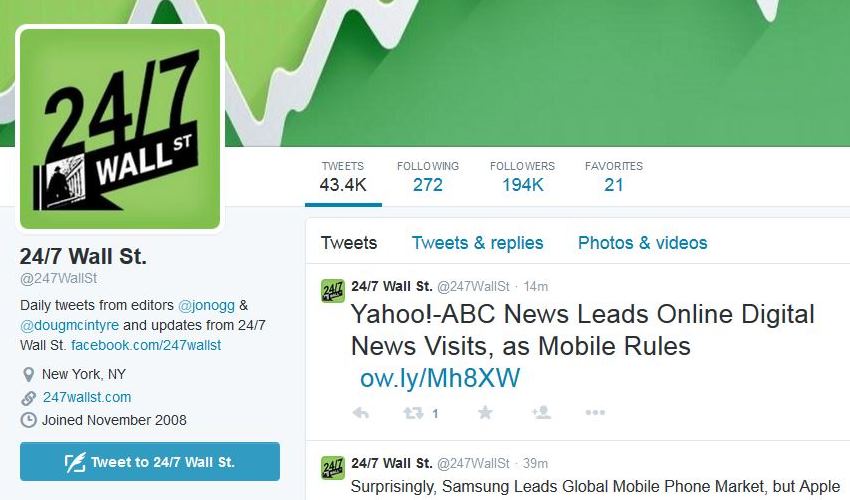As most people can remember, for decades, or maybe longer, the traditional way to get the news was from the news media itself. Direct access to opinions and hard news reporting were at the core of what people found out about the world around them, even if they thought some of the media were biased. Facebook Inc. (NASDAQ: FB) and Twitter Inc. (NYSE: TWTR) have changed that to a great extent. People on these social networks share news sources and stories with one another. That, by its nature, cuts out some of the value of consumers directing themselves to original news and information.
According to Pew Research Center journalism and media experts:
The new study, conducted by Pew Research Center in association with the John S. and James L. Knight Foundation, finds that clear majorities of Twitter (63%) and Facebook users (63%) now say each platform serves as a source for news about events and issues outside the realm of friends and family. That share has increased substantially from 2013, when about half of users (52% of Twitter users, 47% of Facebook users) said they got news from the social platforms.
ALSO READ: New Changes to UBS Quality Growth at a Reasonable Price List
While Facebook bests Twitter by most tradition measures, including membership size, revenue and market value, Twitter has an edge as a source for current news:
Although both social networks have the same portion of users getting news on these sites, there are significant differences in their potential news distribution strengths. The proportion of users who say they follow breaking news on Twitter, for example, is nearly twice as high as those who say they do so on Facebook (59% vs. 31%) — lending support, perhaps, to the view that Twitter’s great strength is providing as-it-happens coverage and commentary on live events.
Both social media encourage members to “deliver” news or entertainment to their friends or associates. At its core, this practice has a certain amount of bias, as it focuses member attention based on subjective, second-party direction. However, many people do not want to search scores of news or entertainment sites. Social media helps them avoid the time required to make the effort to directly explore newspapers, radio and television. Instead they can simply look at news sources offered by friends. However, as friends become more important, the opportunity for selective judgment about what is important in the world and what is not, based on these original sources, disappears.
ALSO READ: 5 Fresh Dividend Hikes Too Important to Ignore
Get Ready To Retire (Sponsored)
Start by taking a quick retirement quiz from SmartAsset that will match you with up to 3 financial advisors that serve your area and beyond in 5 minutes, or less.
Each advisor has been vetted by SmartAsset and is held to a fiduciary standard to act in your best interests.
Here’s how it works:
1. Answer SmartAsset advisor match quiz
2. Review your pre-screened matches at your leisure. Check out the advisors’ profiles.
3. Speak with advisors at no cost to you. Have an introductory call on the phone or introduction in person and choose whom to work with in the future
Thank you for reading! Have some feedback for us?
Contact the 24/7 Wall St. editorial team.




